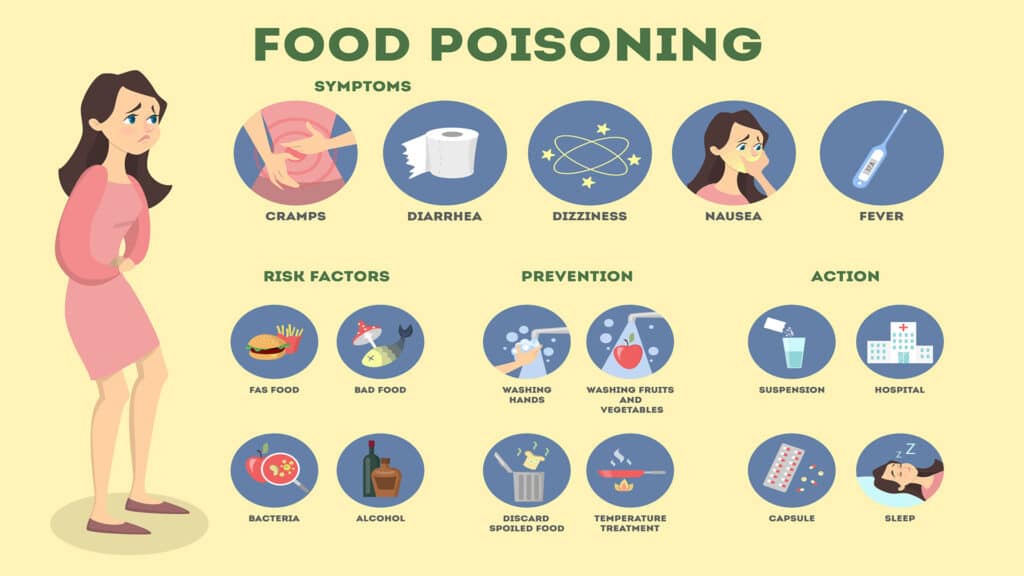4246 Insights
Your source for the latest news and information.
Tummy Trouble: The Sneaky Ways Food Can Turn Against You
Discover the hidden culprits behind your tummy troubles and learn how everyday foods can sabotage your gut health. Click to unravel the secrets!
Top 5 Foods That Could Be Causing Your Digestive Woes
Many individuals experience digestive discomfort without realizing that certain foods could be the culprits. From common staples to exotic treats, some foods can disrupt your gut health, leading to symptoms like bloating, gas, and even chronic digestive conditions. In this article, we will explore the top 5 foods that could be causing your digestive woes and how to identify them in your diet.
- Dairy Products: Lactose intolerance affects a significant portion of the population, meaning that the body struggles to digest lactose found in milk and cheese. This can lead to bloating, diarrhea, and abdominal cramps.
- Gluten: For those with celiac disease or gluten sensitivity, consuming wheat, barley, or rye can trigger severe digestive issues. Symptoms may include bloating, fatigue, and gut inflammation.
- Processed Foods: High in additives and preservatives, processed foods can disrupt the gut microbiome, leading to digestive problems such as gas and indigestion.
- Legumes: Although packed with nutrients, legumes like beans and lentils contain oligosaccharides, which can cause gas and bloating as they ferment in the gut.
- Sugary Foods: Excess sugar, particularly fructose and artificial sweeteners, can upset your gut balance and lead to digestive discomfort.

Understanding Food Intolerances: Are You Eating What Doesn't Agree With You?
Understanding food intolerances is crucial for maintaining optimal health and well-being. A food intolerance occurs when your digestive system cannot properly break down certain foods, leading to uncomfortable symptoms. Common food intolerances include lactose intolerance, gluten sensitivity, and reactions to certain additives or preservatives. If you frequently experience bloating, gas, or abdominal pain after meals, it may indicate that you're eating something that doesn't agree with you. Keeping a food diary can help identify potential triggers by tracking your meals and corresponding symptoms.
Recognizing the signs of a food intolerance is the first step towards making healthier choices. Signs may include nausea, headaches, fatigue, or skin irritations. Unlike food allergies, which can cause severe reactions, food intolerances typically lead to less immediate but still distressing symptoms. To alleviate these issues, individuals should consider eliminating suspected foods from their diet and gradually reintroducing them to see how their body reacts. Understanding your unique dietary needs can greatly enhance your quality of life and promote better overall health.
The Hidden Impact of Processed Foods on Your Gut Health
The relationship between processed foods and gut health is a growing concern among nutritionists and health enthusiasts. Many processed foods contain additives, preservatives, and high levels of sugar, which can lead to an imbalance in the gut microbiome. This imbalance may result in conditions such as irritable bowel syndrome, bloating, and even digestive disorders. To maintain a healthy gut, it’s crucial to be aware of the types of foods we consume and their potential effects on our digestive system.
Furthermore, processed foods often lack essential nutrients and fiber that are vital for the growth of beneficial gut bacteria. According to a growing body of research, diets high in processed foods are linked to increased inflammation, which can further compromise gut health. To counteract these negative effects, consider incorporating more whole foods into your diet, such as:
- Fruits and vegetables
- Whole grains
- Nuts and seeds
- Fermented foods like yogurt and sauerkraut
By making these choices, you can enhance your gut health and overall well-being.